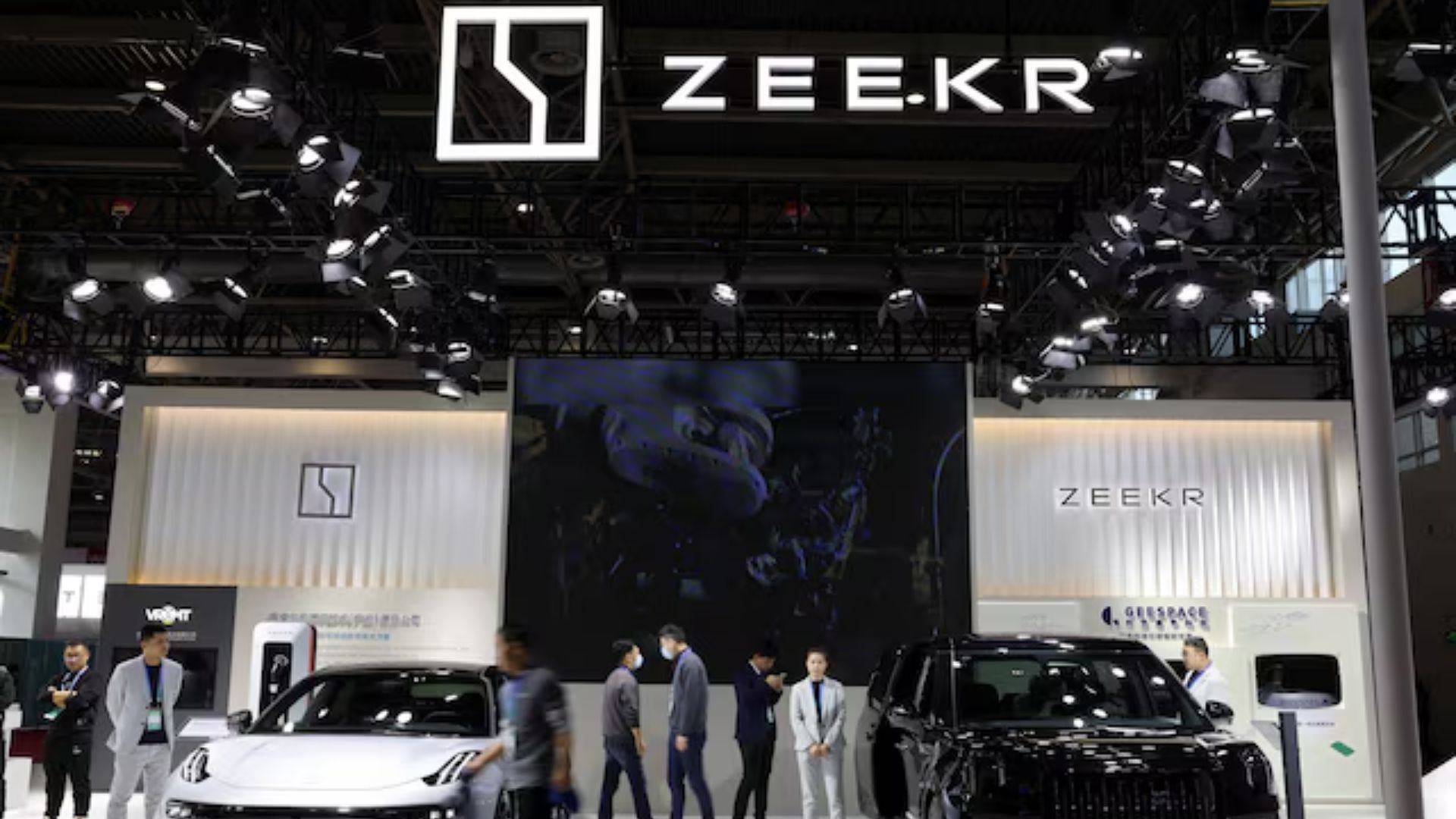Summary
- Geely-owned Zeekr valued at $6.8 bln at open
- First major Chinese listing in the US since 2021
- Chinese EV makers looking to boost exports
- Shares of EV makers have been hit hard of late
(Reuters) – Zeekr’s shares rose almost 35% above their initial public offering price on Friday in a strong start for the electric-vehicle maker, the first major U.S. market debut by a China-based company since 2021.
The company successfully pulled off its U.S. flotation as it seeks to stand out among a crowded group of Chinese electric-vehicle makers competing for a bigger share of the European market.
Its first day of trading ironically comes at a time when U.S. President Joe Biden’s administration plans on boosting tariffs on Chinese vehicle imports to the United States.
“The capital markets in New York are very favorable for new energy vehicles. Zeekr is a global brand, and choosing to list in New York further demonstrates its global capabilities,” said CEO Conghui An, who is also the president of Zeekr’s parent company, Geely Holding Group.
Zeekr is the premium brand of Chinese automaker Geely, which also owns Sweden’s Volvo Cars and the UK’s Lotus. It was formed in 2021 to tap into growing Chinese demand for premium models and has since delivered nearly 200,000 cars, mostly in China, according to its IPO filing.
Fierce competition in China among domestic rivals and with Tesla has eroded EV makers’ profits, prompting them to look at other markets for expansion.
The debut gave Zeekr a fully diluted valuation of $6.8 billion, or about half the $13 billion it fetched after a funding round last year.
Chinese automakers BYD, SAIC and Great Wall Motor are all targeting Europe, rolling out electric models as they seek to compete with legacy European automakers on their turf. Chinese EV sales in Europe have soared in recent years.
Zeekr’s CEO said Geely aspires to become the Volkswagen Group of this era of new energy vehicles, comparing the company to Europe’s top automaker.
Within Geely, Zeekr’s mission is to address the luxury EV market segment, he said.
Zeekr’s shares traded as high as $29.36 after opening at $26, compared with its IPO price of $21. The stock closed at $28.26, up 34.6%.
EV CHALLENGES
Shares of EV companies in the United States have lost substantial value in recent months, including Tesla, the leading U.S. EV maker, which has dropped 30% this year.
Rivian Automotive has lost 85% since its IPO in November 2021, while Lucid Group is left with a fourth of what it fetched when it signed a deal with a blank-check firm earlier that year.
Zeekr, however, upsized its IPO, indicating strong demand from investors. It sold 21 million American depositary shares to raise $441 million. It had earlier planned to sell 17.5 million ADSs at a price between $18 and $21 apiece.
Since the start of the year, the company’s deliveries have overtaken its nearest competitors.
Zeekr delivered 49,148 vehicles in the first four months ended April 30, while Xpeng delivered 31,214 units and Nio delivered 45,673 cars during the same period, according to regulatory filings and press releases.
The share flotation comes during rising tension between the world’s two biggest economies over trade, intellectual property, Taiwan and China’s stance on the Russia-Ukraine war.
The discount to last year’s valuation could help draw in investors, said Dan Coatsworth, investment analyst at AJ Bell.
“They’re able to buy into a growing business at a fraction of last year’s valuation. Everyone loves a perceived bargain.”
The number of Chinese companies that have pursued stock market flotations in the U.S. in the past few years has dropped, after Chinese ride-hailing giant Didi Global was forced to delist its shares following a backlash from Chinese regulators.
Beijing has since softened its stance and released a set of rules last year to revive such listings, after the U.S. accounting watchdog and China resolved a longstanding audit dispute in December 2022.
Reporting by Niket Nishant and Manya Saini in Bengaluru, Echo Wang in New York and Sarah Wu in Beijing; Additional reporting by Arasu Kannagi Basil; Editing by Anil D’Silva, Shounak Dasgupta and Pooja Desai











